Food and studying. Read the pinned post for more about me!
Don't wanna be here? Send us removal request.
Text
That thing when you ask your professor a question and they get that distant look in their eyes and stare into space for a while and you can see them racking their brain for an answer and then, they get really excited when they realize that they dont know so now they have an excuse to research something new >>>
743 notes
·
View notes
Text
how to study + become a better college student
*i’m in nursing school for reference*
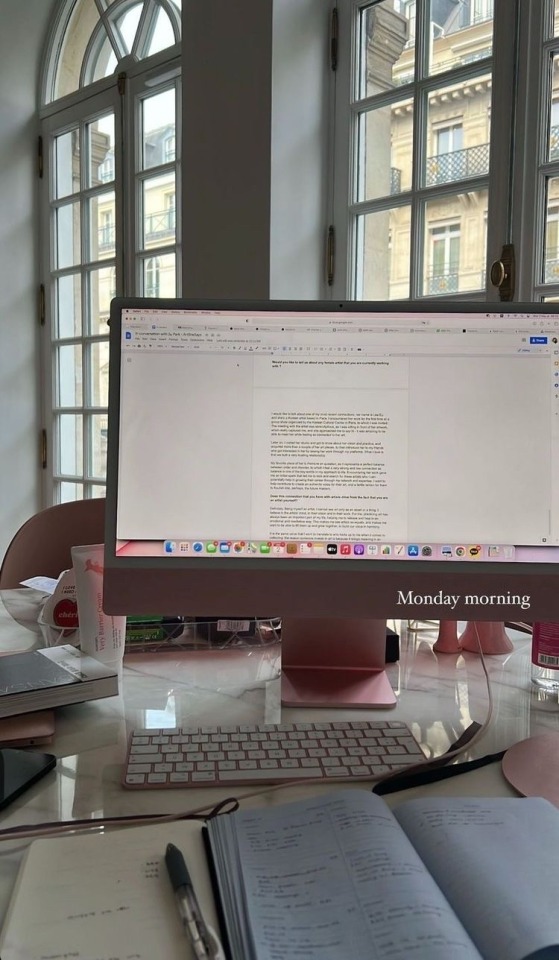

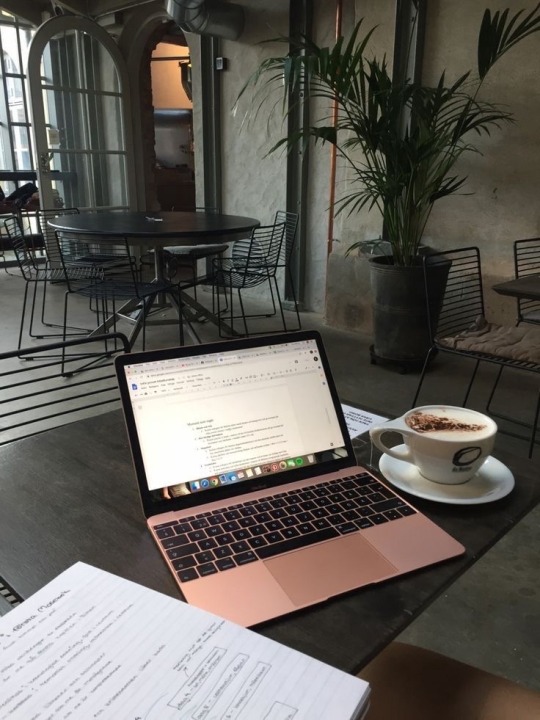
before classes/school:
#1. eat a good, hearty breakfast. i cannot concentrate when i’m hungry because i think about lunch or having a snack. i like to carb up for breakfast (carbs give you energy) and have things like pancakes, french toast, bagels, etc., as well as protein (because that keeps you full) like eggs, turkey bacon, yogurt, etc. i like to take a green powder or a multivitamin during this time to give my body what it needs so that i can function for the rest of the day too.
#2. i always bring water with me to class so that i can concentrate and not think about how thirsty i am. it’s super important to stay hydrated so come prepared.
#3. i know the lesson plan and what’s going to be talked about each day, and if your classes are run like that too, read the chapter or look over whatever it is you’re going to look over today in class to give you a general idea of what you’re going to learn today. this will help you feel like you’re one step ahead (which you are).
#4. wake up early enough to be relaxed in the morning. every time i didn’t perform my best in school was when i woke up and immediately rushed to get ready for class and not took the time to allow myself to ‘wake up’. your mornings should be chill, not a race against the clock.
during classes/school:
#1. actually jot down notes— do not rely on just using your phone to take pictures of the board/powerpoint. when you write your notes down, you get a chance to get that information stuck in your head. what i do if my instructor goes too fast on the powerpoints is: i take a picture of the powerpoint, then i write down what she/he says, then when i get home i rewrite what i took a picture of and the notes that i took in class (i’ll talk about this later).
#2. ask questions— who cares if you’re shy or whatever. asking questions will allow you to be more engaged and it shows your professors/instructors/teachers that you actually care (and they might even bump some grades up for you if you show you’ve taken initiative and tried). every question you ask, write your question down and their response in your notes. i’m telling you, this has helped so much and it gives you such a good look.
#3. use your lunch break for what it is— a break. 30 minutes isn’t a lot of time for an 8 hour day so actually rest and enjoy your lunch during this time. you need a chance to reset.
#4. if you can, always ask to review your tests with your professors/instructors. see what you got wrong and talk it through with them. in nursing school, we generally aren’t able to see what we got wrong on our exams and tests without our professor being there to review them with us. please do this.
#5. use a 1 subject notebook for each class and have pens/pencils that you only use for class. your notes in class should be legible but not super pretty. make your notes pretty at home, not in class.
#6. when taking a test, go over the questions and answers before turning in. there have been so many times i read a question too quickly and changed my answer and i ended up being correct when i looked it over again. don’t make those dumb mistakes.
#7. befriend the other students who do really well in the class. seriously, this will save you.
after classes/school:
#1. when you get home from school, unwind for an hour. take a shower, go to the gym, do whatever you want to do to allow yourself to relax and unwind. you need to take another break after school to regroup and to find a little bit of balance.
#2. review the notes you took in class that day and the pictures you took of the board, and rewrite your notes in a different notebook. so i suggest 2 notebooks for each class— one for your sloppy in-class notes and another for your pretty and organized notes. rewriting your notes will allow your brain to help retain that information.
#3. spend some time each day after rewriting your notes to watch a few videos on youtube about that topic. for nursing school, i like to look at 1-3 videos about what we’re learning to get a wider understanding.
#4. on the weekends, i like to spend 1-2, sometimes 3 hours each day reviewing everything i learned that week. i will watch more videos, i will read over my notes, and i will also create flashcards with my own practice questions in regards to the notes i take and quiz myself with those cards.
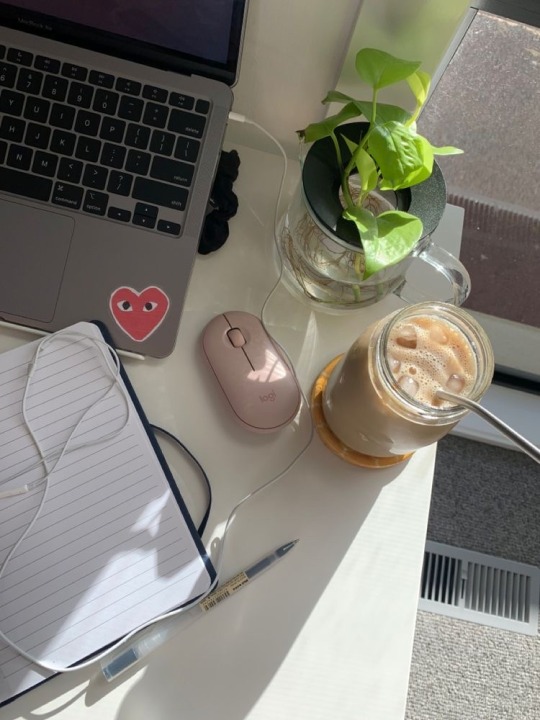
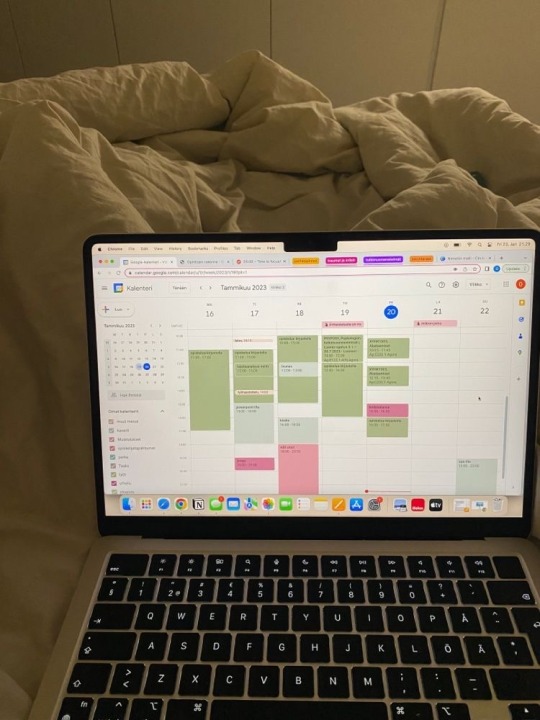

1K notes
·
View notes
Text
Random Study Tips

Don't study for too long if you are not enjoying it.
Take short breaks after 20-30 minutes.
Don't study in the living room, bedroom, etc.
Study in a separate place dedicated to studying.
Don't try to memorize without understanding. Try to understand the concept first.
Don't always study alone. Studying in groups helps a lot.
Don't highlight text blindly. Highlighting doesn't help that much. It only indicates Recognization not Recollection of the topic.
Always take notes. Reviewing the notes after a short time helps a lot.
Always try to teach others what you have learned.
Teaching is the best way of learning. Teach your parents, siblings, friends or even a rubber duck (programmers will know the rubber duck method).
Sleep is so much important for pushing something into your long-term memory. Get at least 7-8 hours of sound sleep.
Try to use the SQ3R (survey, question, recite, read, review) method while studying.
Use Mnemonics. It's the best way to memorize facts.

2K notes
·
View notes
Text
Study break ideas, because burnout sucks
Taking breaks is, arguably, the most important thing a person can do when studying. Nearly every piece of advice on the internet regarding studying talks about how important breaks are, but few give example of what a productive, useful break can look like.
Things that make a good break:
things that reset your mind, things that allow you to rest, things that need to get done but don't use too much brain power, etc. If your brain is working during your break, it is not going to be as useful as a break where you can just move through things without a thought.
Things that make a bad break:
Anything that uses your brain. While it may not feel like it, reading your favorite book as a break isn't great because you are processing and using that noggin. Being on your phone is extra terrible because you get the double dose of 1) using your brain and 2) instant gratification, which can throw off any motivation you had to study.
Now here are some actual examples of things to do on your break:
~ make yourself a snack
~ do your hair
~ wash your face/brush teeth/take a shower
~ go on a quick run (most people can run a mile in less than 15 min)
~ take a power nap (can be dangerous- make sure you have an alarm set + you don't get more tired after taking a nap)
~ clean your room
~ clean out your fridge
~ do a stretching routine
~ make your bed
anything that is purely physical will work well- get your body doing something other than sitting at a desk and your brain and body both will thank you
211 notes
·
View notes
Text


August rain:
the best of summer gone, a new fall not yet born. The odd uneven time.
- Sylvia Plath
3K notes
·
View notes
Text
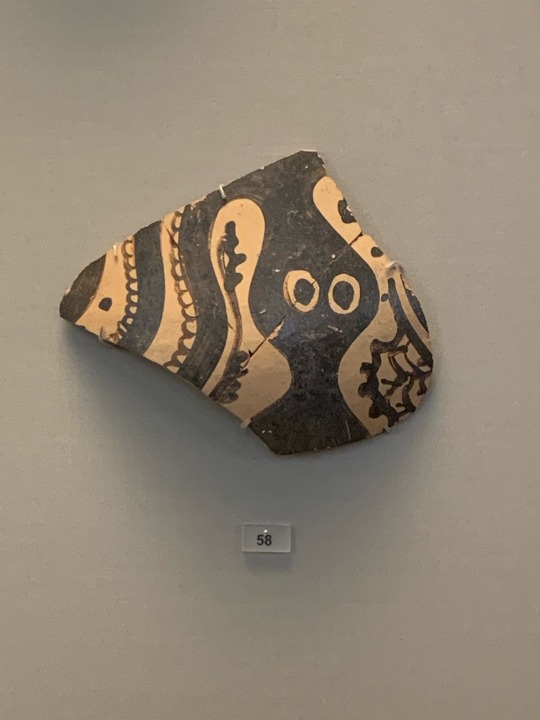
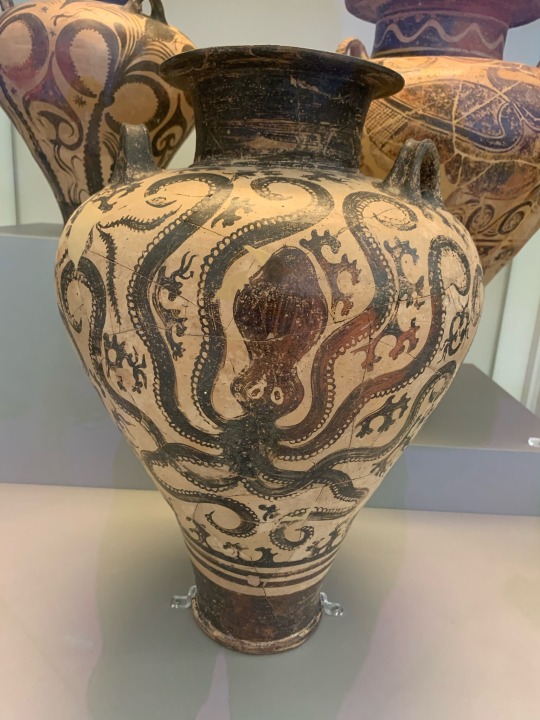
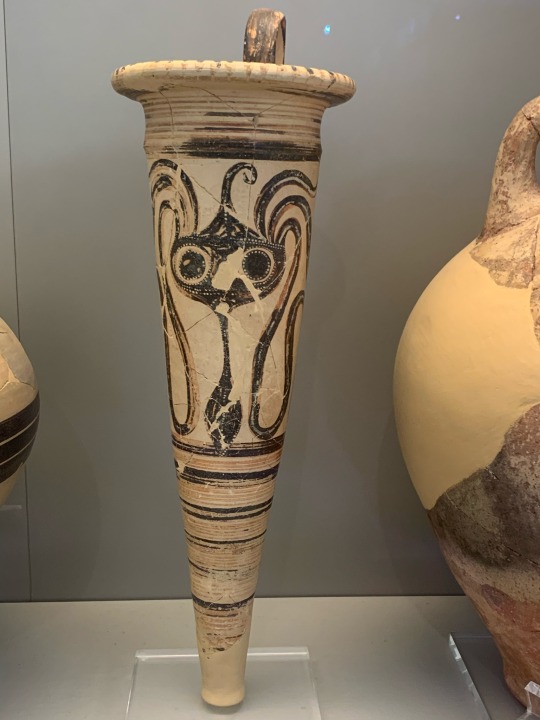

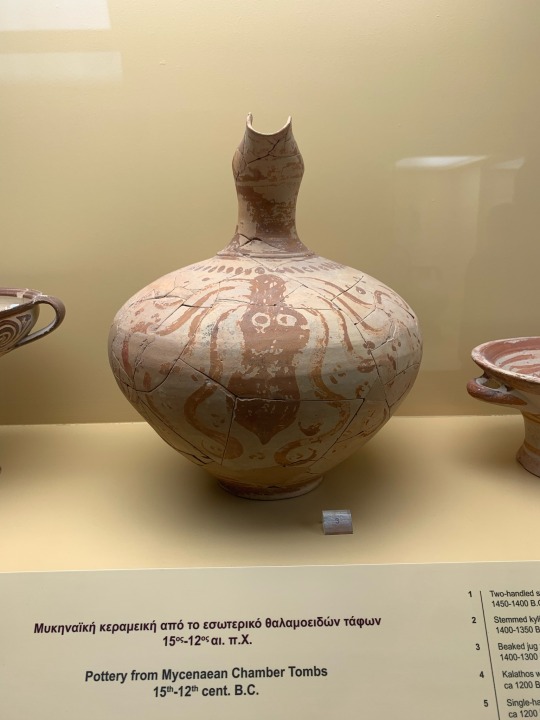
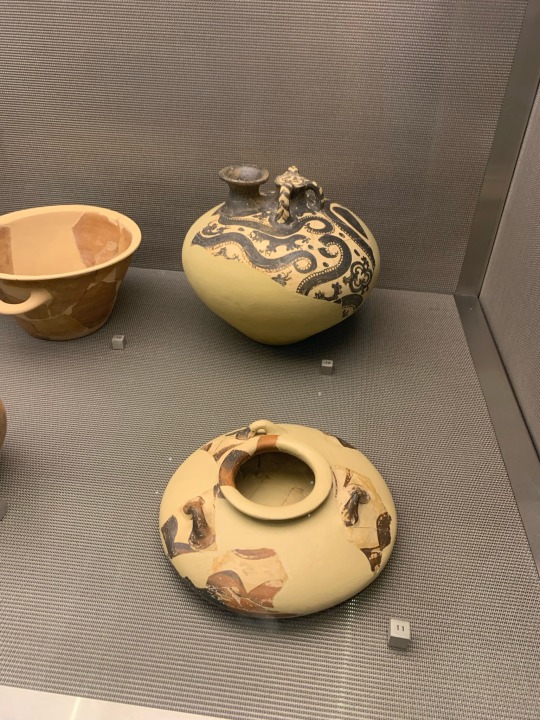
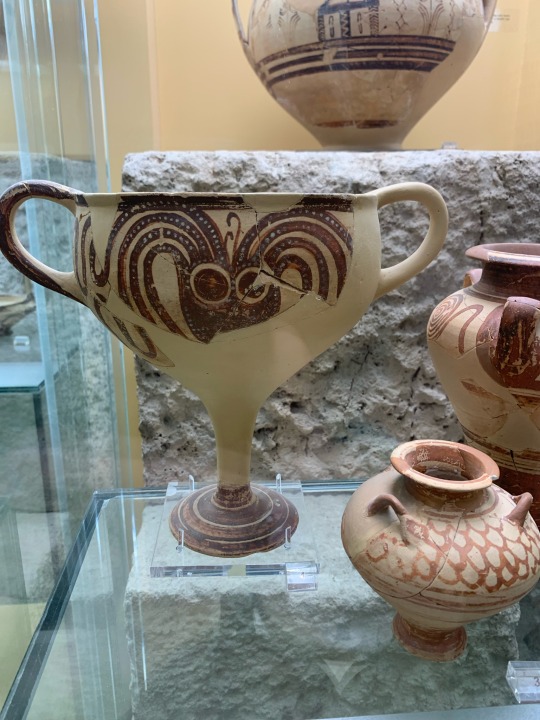


Ancient Greek Octopus Vases
Spotted at the Acropolis Museum, the National Archaeological Museum, and the museum of the Ancient Agora, all in Athens
Photos by me
1K notes
·
View notes
Text
every now and then i have to think of the roman family from two thousand years ago that buried their little daughter in a boy's athletic-themed sarcophagus and i weep a little because that's the softest declaration of love i can possibly imagine
101K notes
·
View notes
Text
I am begging academics to realise that ancient people had emotions too.
366 notes
·
View notes
Text
Chicken teriyaki noodle
Ingredients:
Chicken
Noodles (i used intstant)
For teriyaki sauce dupe:
Soy sauce
Oyster sauce
Worcester sauce
Brown sugar
Water
Garlick, finly chopped
Cornstarch*
* = optional
Steps:
Boil the noodles according to packet, but don't use the flavour packets (or do, i haven't tried it).
Chop up the chicken however you want it. I had both strips and "cubes". Put it in a pan and make it like you usually do. Add salt and pepper.
For the sauce, mix everything together listed together. Modify it to your liking. When the chicken is done, just add the sauce directly and let it simmer until you're satisfied with the consistency of the sauce, and the chicken is coated in it. Enjoy!
I'd recommend adding greens, like broccoli. I was just empty. Sesame seeds would be a nice touch, too.
Affordability: 5/10, chicken can be expensive
Taste: 10/10, but I'm biased because i love teriyaki and chicken and noodles generally.
0 notes
Text
the feminine urge to mourn lost cultures and empires. for your heart to ache every time you remember how many languages no longer have speakers, how many ruins are abandoned, how many people lived happy lives before you. to feel melancholy and longing every time you study history - of this world or another, even fictional. to want to play a role in history, but in the same time fear dying, passing, being forgotten like those thousands before you.
17K notes
·
View notes
Text
MASTERPOST OF MY POSTS
Advice posts:
Small things you can do to help keep somewhat sane when life is chaos incarnate
Tips for a super busy life with add-on by lilliesandlovebirds
STEM writing advice
schedule time for yourself
Broke college student tip: cook
Small changes make big impacts
Gathered school advice
advice for new college students
tips for playing catch up
Getting back into school
UNIVERSITY WITH MENTAL ILLNESS
How to bounce back from failing a test
Study stuff:
review/summary pages
Testing tips: minutes before the test
Fun ways to help stay focused while studying
A survival guide for finals week
different study methods
How I condense notes for quick reviews
Testing tip
My 20 Favorite Language Learning Tips
Autism and School
Productivity:
Productivity and disability
One of my favorite productivity tips:
Healthy productivity
don’t be productive all the time
How to make the most out of a sick day
slow mornings
How I limit my productivity and why you probably should too
Other:
Easy and cheap study snacks: stuffed croissants
failing is ok
academic wins
TIPS FOR MANAGING CHRONIC MIGRAINES AND ONLINE CLASSES with add-on by phdstudygirl
Things I learned from failing classes
745 notes
·
View notes
Note
Fun facts about ancient Mesopotamia?
I never, ever do requests, ever, and will absolutely not respond to this prompt on ancient Mesopotamia with any fun facts at all, ever.
Fun facts about ancient Mesopotamia:
Mesopotamia is Latin for "The Middle Potamia."
The region was also called "The Fertile Crescent," for reasons far too disgusting and inappropriate to mention on the internet.
Mesopotamia was situated between the rivers of the Tigris and Euphrates, which are named for the Tiger and an extinct mammal called the Euphrate, which resembled a llama with horns.
This area was the home to one of the world's first civilizations, called Sumer. Its main city was called Ur, probably because ancient humans weren't into multi-syllabled words and names, keeping things simple. They also worshipped a god named Ninḫursaĝadamgalnunaninmah.
Sumerians are thought to have invented the wheel, irrigation, writing, astronomy, and memothepalopatioscion, a science which is lost to time but probably had something to do with infinite clean energy and perpetual motion. They may also have invented shoes.
The ancient Mesopotamians buried their dead by placing them in large jars. This kept the dead safe and ready for their reincarnation, though the Sumerians feared the eventual coming of a boy who would smash all the pots and doom the afterlife, known as "Link."
Sumerian art mostly consisted of men with beards, women with beards, animals with human faces and beards, and beards on their own, enjoying their freedom to pursue a life of religious fulfillment.
They liked to build vaguely pyramid-like structures called "ziggurats." These ziggurats kept growing in size over the years until one reached so high it was considered an affront to God, who in turn made everyone speak different languages according to the Bible. According to authentic Sumerian texts however, the structure really reached only 1,396ft, and was intended as a residential complex for the super rich where they could over look Chalcolithic Park West. Unfortunately it was poorly designed and ineptly constructed and the rich people abandoned it in favor of yachts, the building being left in disrepair as a sign of toxic Mesopotamian capitalism run wild.
Thank goodness we have learned from their ancient errors and would never do such things in modern New York. At 432 Park Avenue.
578 notes
·
View notes
Text
Random writing tips that my history professor just told during class that are actually helpful
Download all your sources or print them so you can turn off your wifi
Give your phone to someone
Just. WRITE. Writing is analysing, you’ll get more ideas as you write. It doesn’t need to be perfect, for now you can just blurt out words and ideas randomly. You can fix it later.
Create a skeleton/structure before writing.
Stop before you get exhausted. It’s best to stop writing when you still have some energy and inspiration left, this will also motivate you to get started again next time.
Make a to do list
Work in bite sizes. Even if it’s not much, as long as you put some ideas on paper or do some editing.
Simple language =/= boring language, simple language = clear language.
Own your words. If they are not your words, state this clearly in the text, not just in the footnotes.
STOP BEFORE YOU GET EXHAUSTED. Listing it again because it’s easily one of the best tips a teacher has ever given me.
14K notes
·
View notes
Text
how to prepare for a lecture/seminar
here’s a useful little trick i just thought of to make preparing for an upcoming lecture more fun.
1. open up the slides, and pretend you’re an assistant lecturer who has just been given them with the task of *holding* the lecture.
2. now go through each slide and try to make sense of it out loud, explaining the principles you see to an imaginary class. not only is this lots of fun, it also forces you to summarize and internalize the material before you’ve even heard the lecture itself. making everything much easier in the long run!
3. now, when listening to the actual lecture, you can focus on details you missed or on making flash cards out of the most useful information.
happy studying!! 💕
993 notes
·
View notes
Text
actual pro adhd productivity hack that works!!! (REAL) (NOT CLICKBAIT)
facetime a friend (or discord or whatever video calling software you have on your phone) as you work.
both of you mute yourselves and just point your camera at yourself. then work.
why this works
you can't use your phone.
whether that's because the facetime is taking up your screen or
because it's embarrassing to have people be able to see slacking off, you can't use it.
you also have to watch yourself stop working and pick up your phone because you can see yourself in the call. extra self-awareness
preferably your friend is also doing work. this way, you can't unmute yourself and start talking to them willy-nilly, because they have work to do too and you feel bad distracting or annoying them
this has been super helpful for me so i hope it works for everyone else
86 notes
·
View notes
Text
Vegetable soup
Ingredients:
Vegetable broth
Carrots
Potatoes
Garlic
Onion
Ham
* = optional, but almost everything here is.
Steps:
Chop up some garlic, onion, and carrots. Put in a pot with some cooking oil as if in a pan. Let cook until you want to go to the next step.
Dice up the potato and ham. Pour some water directly into the pot, add broth, potatoes, and ham. Season to liking.
Let cook until the hardest vegetable is soft. I cooked mine until the potatoes were to my liking. Enjoy!
This is probably my favourite. Super comforting, hearty (depending on what you add), and a great way to use up whatever vegetable scraps you have left. Also super customizable.
Time: about 45 minutes.
Affordability: 9.5/10
Taste: 8/10
0 notes
Text
10 steps to revise for an exam (and my recommended timeline)
Quickly go over the material that will be covered on the exam. Put each topic into a category of "Good" "Okay" and "Bad" based on your understanding of that topic. (Day 0 - Before revising)
Look at steps 3-10 and put them into a study plan that you can follow. This will keep you on track and ensure you cover everything. (Day 0 - Before revising)
First, start with your "Okay" list. Briefly revise each topic, focusing on definitions, formulas, and general concepts. At this point, you should be ensuring that you know the information, not focusing on exam practice. I like using flashcards for this step to ensure I actually know the information (Day 1)
Now, do the same for your "Good" list. (Day 1 or 2)
Once you've done steps 2 and 3, you're ready to practice! If your professor has given you practice/review questions, use those. You can also find great questions in your textbook or from past assignments. (Day 2)
Now, focus on your "Bad" category. Do a much more thorough review of the information in this category, almost as if you're learning it for the first time. This is a step where flashcards may be super helpful, especially if you need to power through a lot of memorization work (Day 3).
This is where you practice your "Bad" category. Make sure to do multiple questions for each topic to ensure that you're prepared for anything that comes your way (Day 4).
Revisit all the information you've studied over this process, and do more practice problems on the topics you're struggling with the most. (Day 5)
Take a deep breath, get some sleep, and eat a good meal! (Exam day!)
Take your exam!
1K notes
·
View notes